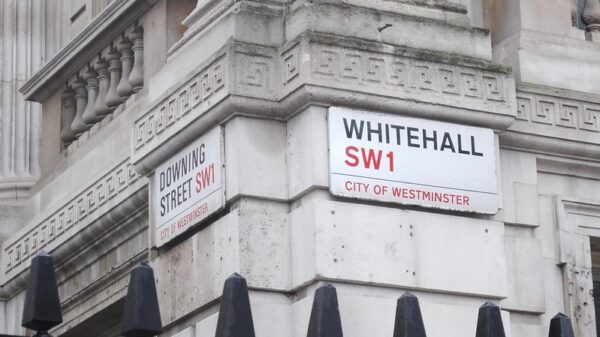Why last week’s demonstration was simply the beginning, and the fight to save our NHS must go on.
At 65, the NHS is old enough for a pension. It’s worked hard since its creation in 1946 and is historically loved by the British people. Tory Chancellor Nigel Lawson once stated it was the “the closest thing the British have to a religion”. Making healthcare a source for profit was certainly within Thatcher’s steely sights; however, the changes she was able to make to our health service were certainly minimal in comparison to the attacks inflicted by our present government.
On 29 September, King’s students marched alongside 50,000 others to publicly object to all NHS cuts and profit-seeking healthcare. Our action was organised by KCLSU, who provided subsidised coach transport up to Manchester, and KCL People’s Assembly Against Austerity (KCLPAAA), a broad coalition of on-campus anti-cuts activists.
The NHS is one of the biggest employers in the world. It presently employs over 1.4 million individuals: that’s around 5% of Britain’s working population, and past, present and future King’s students are part of this. This includes medical students and everyone who relies on NHS healthcare as patients – it’s a public body we can’t afford to lose. Since austerity cuts began, it’s been haemorrhaging workers; over 21,000 NHS jobs have been lost in the past three months alone.
In Britain, attacks on the NHS have been met with a swell of grassroots resistance. Local battles, such as to prevent the closure of the Lewisham A&E, have been won, and the 29 September march has been part of searching for a national strategy for the movement. On-campus groups such as KCLPAAA will be putting campaigns around the NHS at the forefront of their activism.
It’s important to recognise that our health service hasn’t stumbled into crisis, although high publicity of patient deaths and over-capacitated wards has unsurprisingly led some to suggest betterment lies with private healthcare and the complete abolishment of the NHS altogether. Additionally, attempts are being made to discredit the welfare state as expensive, badly run and bound to fail. This contrasts with the reality, where the NHS consumes a lower percentage of GDP than almost all other European countries.
We can trace the NHS’s current hardship back through a path of destructive neoliberal reforms that began with Thatcher in the ’80s. Initially, only private sector management practices were introduced, but later governments went further with the introduction of a purchaser-provider divide. Hospitals were divided into smaller trusts that compete for local funding.
Since the 1990s, public money has been scandalously swallowed up by PFI debt repayments. PFI contracts allow private construction firms to pay for building new facilities, which are leased back to public bodies, such as the NHS, locking hospitals into debt cycles. The sums quickly multiply; between 2011 and 2013, NHS trusts in England spent £628.7 million in repaying PFI debts. That’s £628.7 million of public money sunk into private profit. Labour also introduced Foundation Trusts, often run under private companies entirely outside health authority control. Foundation Trusts can operate any other type of business at the same time, and are often not specialised healthcare companies. They can borrow money from financial markets (not a stable entity by anyone’s count), but this money is counted against NHS limits, leaving less money available for non-foundation trusts.
With their path laid by previous Labour governments, the Tories are now back to finish Thatcher’s dirty work, their sights clearly set on ending universal healthcare. The 2012 Health and Social Care Act is designed to weaken it to an extent where our health service will wither away, as private healthcare providers take over. The bill hands over the control of public health services to local authorities, out of NHS control completely. In classic Tory style, the distribution of the public health budget to these authorities is far from equal or fair. For example, Kensington and Chelsea, one of London’s wealthiest areas, has been allocated £130 per head. By contrast, Newham, a much poorer area, gets £75 a head. The NHS’s already thin service for sufferers of mental health problems has been particularly targeted, along with other vital services such as maternity wards, ambulance services and A&Es.
KCLSU President, Sebastiaan Debrouwere, highlighted in particular the problems faced by international students with the government’s proposed £200 fee for migrants to use the NHS. “Not only will the levy make it even more difficult for the best and brightest students from outside Europe to attend our institution, it will also exacerbate the precarious financial position that many international students already find themselves in,” he argues. Many chose to march under the banner “We’re international students, not health tourists” in solidarity with those who already pay higher tuition fees, higher rent deposits, visa costs and now face the possibility of more fees.
This levy is part of a combination of anti-immigrant laws that threaten the NHS, and will likely coerce migrants who earn under £35,000 into leaving Britain. This threatens around 41% of nurses, according to a UKBA assessment. It’s a backtrack on NHS history, on its founding philosophy. Our health service was founded in the post-war years as Britain adjusted to a post-colonial world. Chronic staff shortages were solved by attracting migrants from abroad, often from places formerly ransacked by the British Empire, such as the Caribbean, Ireland, India and Pakistan. In an ironic twist, the Con-Dems want to blame migrants for government policy failings.
King’s students marched outside the Tory conference against their mishandling of our health service, to practice democratic participation in our society and in the anti-austerity movement. The demonstration was peaceful and had an exhilarating atmosphere – just the beginning of on-campus anti-cuts action this year.
King's College London. Award-winning student newspaper, a platform to share your story, and a publication that holds entities accountable when no one else dares.
















